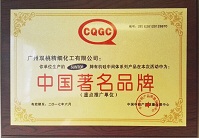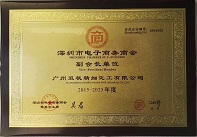
![]() E-mail: admin@gz-chemical.com
E-mail: admin@gz-chemical.com
Email us,best price and silane solutions for you!
Tel:+86 (20) 29035969

![]() E-mail: admin@gz-chemical.com
E-mail: admin@gz-chemical.com
Email us,best price and silane solutions for you!
Tel:+86 (20) 29035969


University of Birmingham scientists are paving the way to swap the lithium in lithium-ion
batteries with sodium, according to research published in the Journal of the American
Chemical Society.
Lithium-ion batteries (LIB) are rechargeable and are widely used in laptops, mobile phones
and in hybrid and fully electric vehicles. The electric vehicle is a crucial technology for fight
ing pollution in cities and realising an era of clean sustainable transport.
However lithium is expensive and resources are unevenly distributed across the planet. Lar
ge amounts of drinking water are used in lithium extraction and extraction techniques are
becoming more energy intensive as lithium demand rises – an 'own goal' in terms of
sustainability.
With the ever increasing demand for electric cars, the need for reliable rechargeable batter
ies is rising dramatically, so there is keen interest in finding a charge carrier other than lithiu
m that is cheap and easily accessible.
Sodium is inexpensive and can be found in seawater so is virtually limitless.
However, sodium is a larger ion than lithium, so it is not possible to simply "swap" it for lithium
in current technologies. For example, unlike lithium, sodium will not fit between the carbon
layers of the ubiquitous LIB anode, graphite.
The scientists needed to find new materials to act as battery components for sodium-ion
batteries that will compete with lithium for capacity, speed of charge, energy and power
density.
Running quantum mechanical models on supercomputers, Dr. Andrew Morris's team from
the University of Birmingham's Department of Metallurgy and Materials was able to predict
what happens when sodium is inserted into phosphorus.
Guangzhou Double Peach Fine Chemical Co.,Ltd
Address: No 3401 Huangpu East Road, Huangpu District, Guangzhou, China
Tel:+86 (20) 29035969 Fax:+86(20)29035979
Tel/Wechat/Whatsapp:0086 13826126978 admin@gz-chemical.com